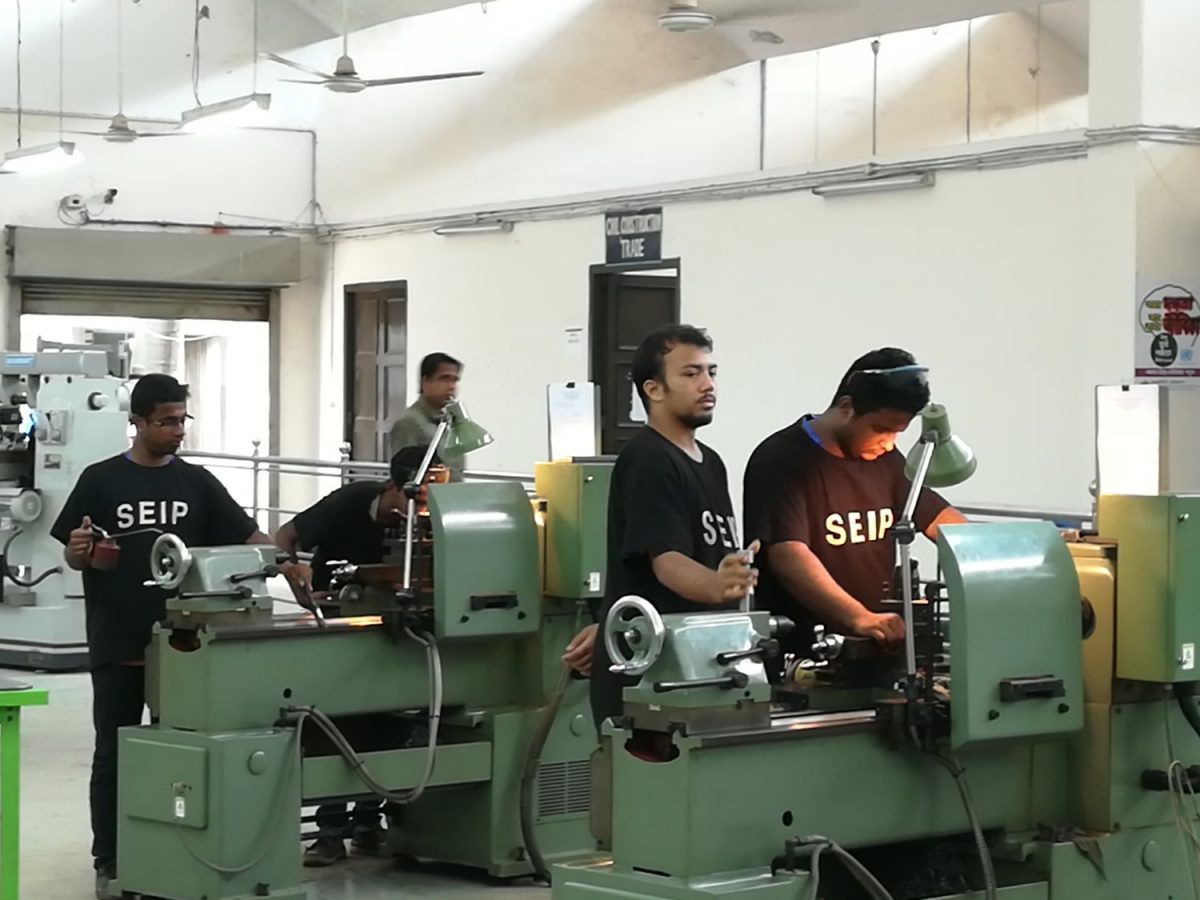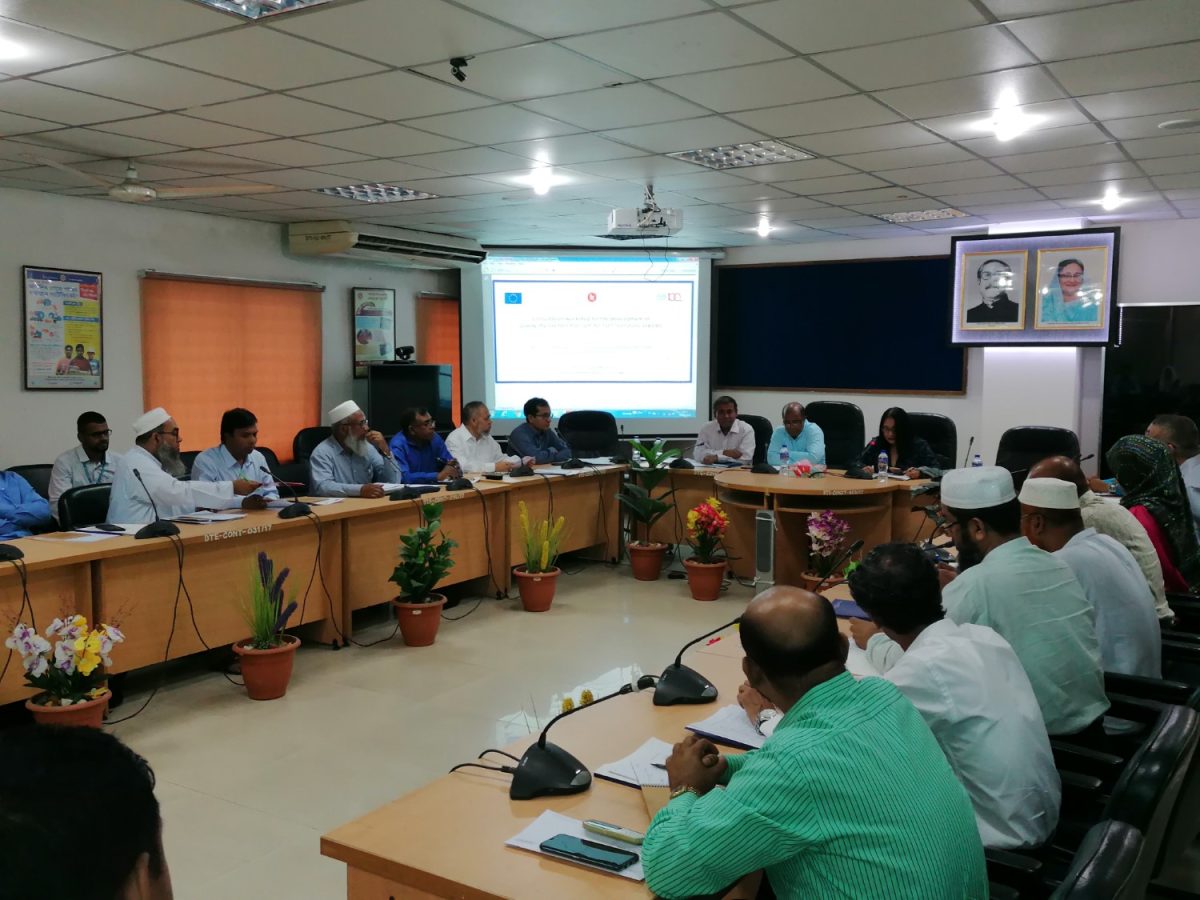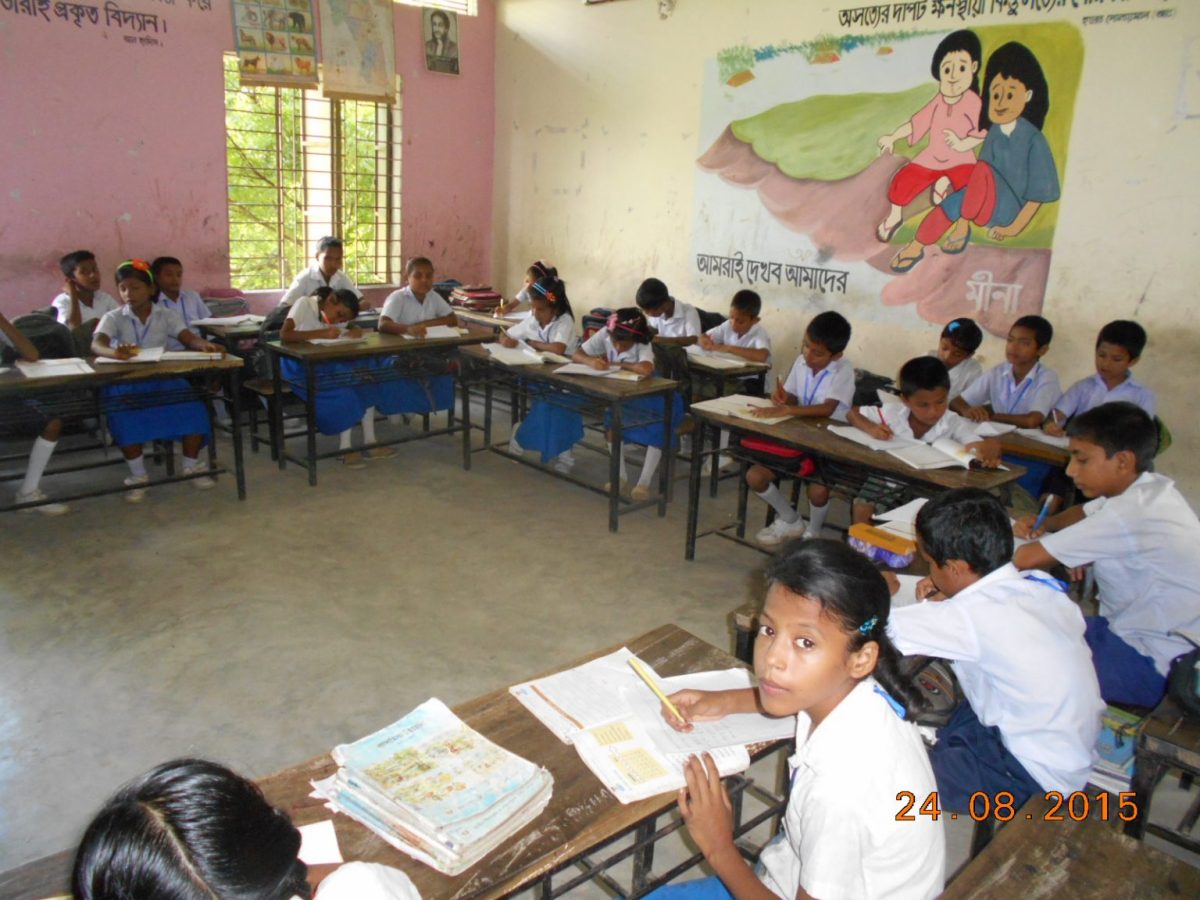Description of Project: The Proposed investment program will support the government of Bangladesh’s reforms in skill development anchored in the National Skill Development Policy (NSDP), 2011. It will support large-scale private sector involvement and public-private partnership, which is critical to meet existing and future labor market needs and in reducing skill-gap. This in turn is crucial for Bangladesh to move away from the current “low-skill, low-wage equilibrium” to a “higher skill, higher wage virtuous cycle” to transition to a middle income country. The existing workers that will contribute to higher growth of priority sectors. The SEIP will strengthen the skills ecosystem in Bangladesh and support transition to a sector-wide approach (SWAp) by establishing a unified funding system and enhancing overall coordination of the currently fragmented system. The impact will be increased income and productivity of the working population aged 15 years and over. There are four outputs targeted: (i) market responsive inclusive skills training delivered; (ii) quality assurance system strengthened; (III) Institutions strengthened and (iv) effective program management.
Description of actual services provided by DPDS in the assignment:
This assignment cover three areas: (i) undertaking regular monitoring in the selected training providers to validate their information and reporting and ensuring quality of the training programs; (ii) supporting the Skills Development Coordination and Monitoring Unit (SDCMU) in updating of SEIP key indicators against baseline information and targets; and (iii) assisting the SDCMU to prepare quarterly and annual progress reports for the SEIP. The consultants will visit the institutions to physically validate their information and track the trainees. The scope of monitoring visits include: (i) ensure that the training action plan of each training provider is available and implemented as planned; (ii) accuracy of reporting, such as enrolment figures, attendance rate of trainees and trainers, assessment of trainees performance by industry assessors and job placement; (iii) stipend criteria are properly followed by the training providers; (iv) teaching and learning materials are provided according to budget provisions; (v) sample job placements( as decided by SDCMU) and retention of jobs based on the agreed milestones; and (vi) overall compliances of the training program including the efficacy of the quality management system of the training providers. The consultant team draw and analyze information from TTS for identification of potentially problematic areas for site visit. The M&E consultants visit the institutions to physically validate their information and track the trainees. The M&E consultant ensure that the training action plan of each training provider is available and implemented as planned, accuracy of reporting, such as enrolment figures, attendance rate of trainees and trainers, assessment of trainees performance by industry assessors and job placement, stipend criteria are properly followed by the training providers.



